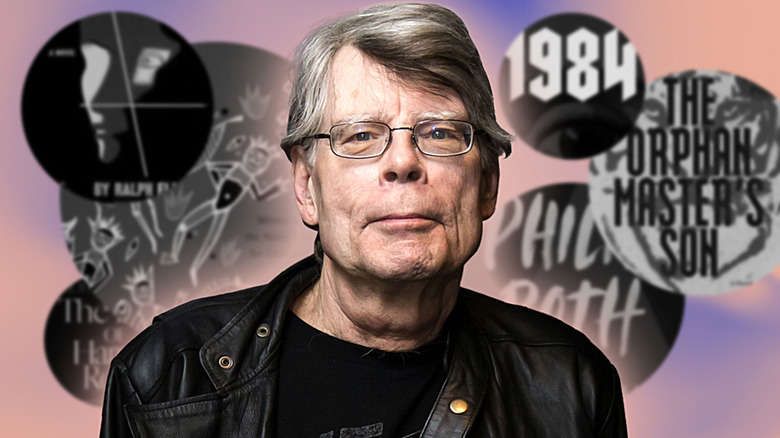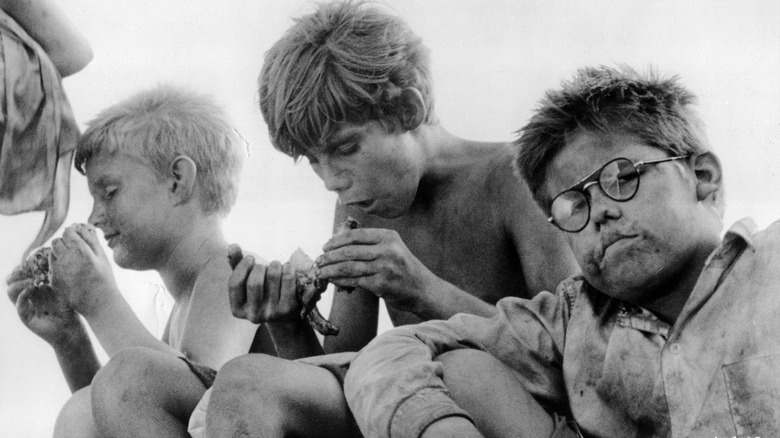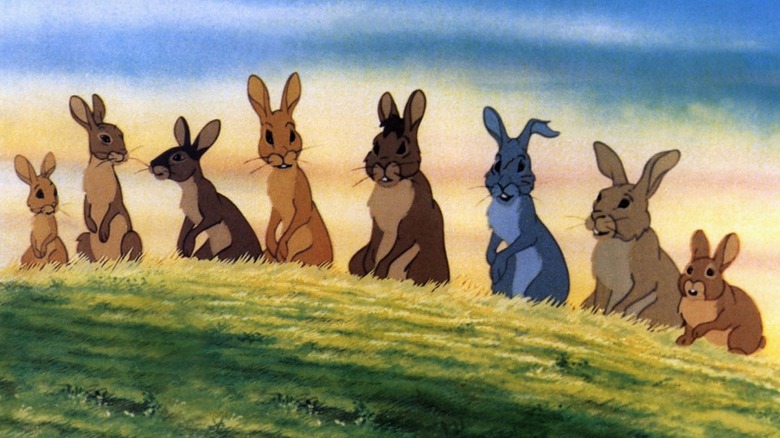Stephen King's 10 Favorite Books Of All Time
Excluding various holy texts like the Bible, the Qur'an, the Bhagavad Gita, the Book of Mormon, and Mao Zedong's Little Red Book, the best-selling book of all time is Charles Dickens' "A Tale of Two Cities," which has sold over 200 million copies since its publication in 1859. This is according to a 2012 article in Reuters, although getting actual figures on such things is difficult to track down. Other big sellers throughout history include Antoine de Saint-Exupéry's "The Little Prince," which, according to Britannica, has sold between 150 million and 200 million copies, Cao Xuequin's 1790 family epic "Dream of the Red Chamber," which sold about 100 million copies, and J.R.R. Tolkien's fantasy fable "The Hobbit," which matched those figures. The most recent super-seller, topping 120 million copies, was 1997's "Harry Potter and the Philosopher's Stone," which was written by an increasingly controversial author.
One might think that Stephen King had a novel in the upper echelons of bestsellers, but no single tome of his has shaken the Earth. If one counts all eight novels in King's "Dark Tower" series as a single title, then he has indeed had one book to sell over 30 million copies. Overall, however, King is estimated to have sold over 400 million books altogether, which is far more than Robert Ludlum, although much less than Dr. Seuss.
In addition to being a voracious writer who is constantly in the public eye, King is also a prolific reader, keeping up on the classics, and keenly aware of finding great literature to consume. King, one might be surprised to learn, reads more than just horror novels, sifting through the gamut of the Western Canon, because there's no reason we shouldn't all be reading the greatest novels of all time.
On the book-based social media website Goodreads, King has started his own personal account, and he has compiled his 10 favorite books of all time. Some of them are standard reading for American high schoolers. Others are difficult deep cuts. Some are truly surprising.
Stephen King's favorite novel is 'Lord of the Flies'
It's a little frustrating that King doesn't offer any kind of commentary on each of his selections; his Goodreads profile merely contains a list. So we can't know why he's been drawn to certain titles. What he did declare is that William Golding's 1954 survivalist drama "Lord of the Flies" is his favorite. Most fifth graders have likely already read "Lord of the Flies," so most will be able to tell you that it is the story of a war evacuation plane full of British schoolboys that crash-lands on a seemingly deserted island. The boys try to survive, but it's not long before they succumb to tribalism and warlike violence. "Lord of the Flies" can be seen as an essay about wartime violence infecting the consciousness of the young, or merely a cynical treatise on how young males, when raised unchecked, will fall naturally into bloody combat.
"Lord of the Flies" has been adapted to film three times, in 1963, in 1975, and in 1990, although there are myriad films and TV shows about people becoming lost in the wilderness and devolving into savagery.
Second on King's list of favorites is 1962's "Ship of Fools," the damning seafaring drama by Katherine Anne Porter. "Ship of Fools" takes place during a single sea voyage from Mexico to Germany in 1933. The steerage is full of lower-class workers from Spain who have been deported, while the upper decks are populated by the well-to-do and politically detached. There is a lot of talk among the rich about how fascism won't be that bad, and how a hotshot young politician seems to be altering Europe for the better. The book, of course, is a condemnation of political complacency, revealing that all it takes is casual racism, right-leaning thoughts, and a lackadaisical attitude to lead directly into totalitarian Hell.
The rest of Stephen King's favorites
Number 3 on King's list is Richard Adams' 1972 drama "Watership Down," another survivalist tale, this time about talking rabbits. Most audiences know "Watership Down" from the acclaimed 1978 animated film adaptation by Martin Rosen. The tale is harrowing and terrifying, featuring rabbits who are injured and who die in violent ways. For the world's prey, life is violent and terrifying at all times. Like "Lord of the Flies," King seems to be drawn to tales of savagery.
The newest book on King's list is the 2012 novel "The Orphan Master's Son" by Adam Johnson. It's a drama about propaganda and dictatorship in modern-day North Korea. Kim Jong-Il is one of the main characters.
King tends to write his own novels about struggling authors, so it's no surprise to see Thomas Williams' 1972 book "The Hair of Harold Roux" on the list, a book about a literature professor who is working on his own novel within the novel. That book waves between the central narrative of the author's life, and a fictionalized version of his own experiences in World War II. King is also fond of Ralph Ellison's treatise on racism, "Invisible Man," and Cormac McCarthy's aggressively bleak "Blood Meridian," a book that declares that War is God. One gets the sense that King is a pacifist.
Naturally, King liked George Orwell's dystopian classic "1984," but who doesn't? He also put Philip Roth's Pulitzer-winning 1997 novel "American Pastoral" on his list, showing that, yes, King loves tragic tales of nostalgia. Then, at number 10, almost as an honorable mention, King said he loved J.R.R. Tolkien's "Lord of the Rings" books, which hardly need description here. He is not above delving into epic fantasy, something he did himself with "The Dark Tower."
That is an eclectic list and shows King is well-read in 20th-century literature.


